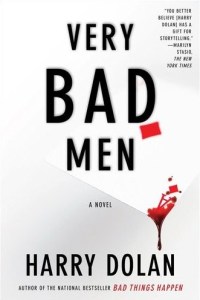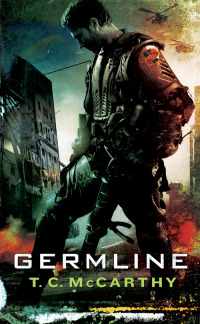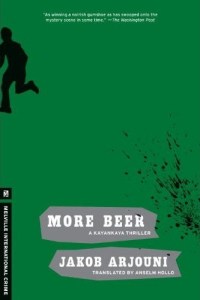Very Bad Men by Harry Dolan
 Friday, July 22, 2011 at 9:52AM
Friday, July 22, 2011 at 9:52AM 
Published by Amy Einhorn Books/Putnam on July 7, 2011
Very Bad Men tells a very good story, an absorbing mystery with enough twists that you may need to take notes to keep track of the plot. Someone is trying to kill the participants in a bank robbery that occurred seventeen years earlier. We are well into the novel before the police discover the killer's identity, but this isn't a whodunit: the reader knows from the start that Anthony Lark is the culprit. What we don't know is why Lark is after the robbers. Investigating the mystery are David Loogan, the editor of a mystery magazine; his law enforcement girlfriend, Detective Elizabeth Waishkey; and Lucy Navarro, a persistent tabloid reporter. Rounding out the cast are the wheelchair-bound former sheriff who caught a bullet while foiling the bank robbery, his daughter Callie who is running for a Senate seat (and with whom Lark is more than a little obsessed), Lark's psychiatrist, and Callie's father-in-law, an affable senator whose behavior is a bit loopy.
The mystery's solution seems to be tied to the getaway driver who fled when the robbery went sour. His identity presents a second mystery for Loogan and the police to ponder. When Navarro disappears a little more than halfway into the story, yet another layer of intrigue is added: Was Navarro kidnapped, and if so, by whom?
Lark is the novel's best character. He suffers from an affliction that imbues written words with color and causes them to move around on a page. He can handle Hemmingway's terse prose but Joseph Heller's abundant adverbs "swarm like marching ants." While unexpected traits like this bring many of Harry Dolan's characters to life, Waishkey is a typical police detective, less interesting than the novel's other players.
Dolan uses crisp, undemanding prose to construct an effective plot. We know that someone wants the truth to remain buried -- to that end, Loogan and Navarro are confronted with threats and attempted bribes -- but the puzzle surrounding the bank robbery kept me guessing to the end. Although it's not always easy to follow, the plot never becomes so convoluted as to slow the story's steady pace.
Loogan is no Sherlock Holmes. As he tries to puzzle out the solutions to the various mysteries, he's frequently wrong. That gives him a measure of credibility that is too often missing from the seemingly infallible armchair detectives who headline mystery novels. As unlikely as it might be for a mystery magazine editor to become embroiled in a mystery, Dolan concocts a believable excuse for Loogan's involvement.
This is the second David Loogan novel but the first I've read. It was strong enough to earn my recommendation and to encourage me to buy the first book.
RECOMMENDED
 TChris |
TChris |  Post a Comment |
Post a Comment |  Harry Dolan,
Harry Dolan,  Recent Release,
Recent Release,  mystery in
mystery in  Thriller
Thriller 


